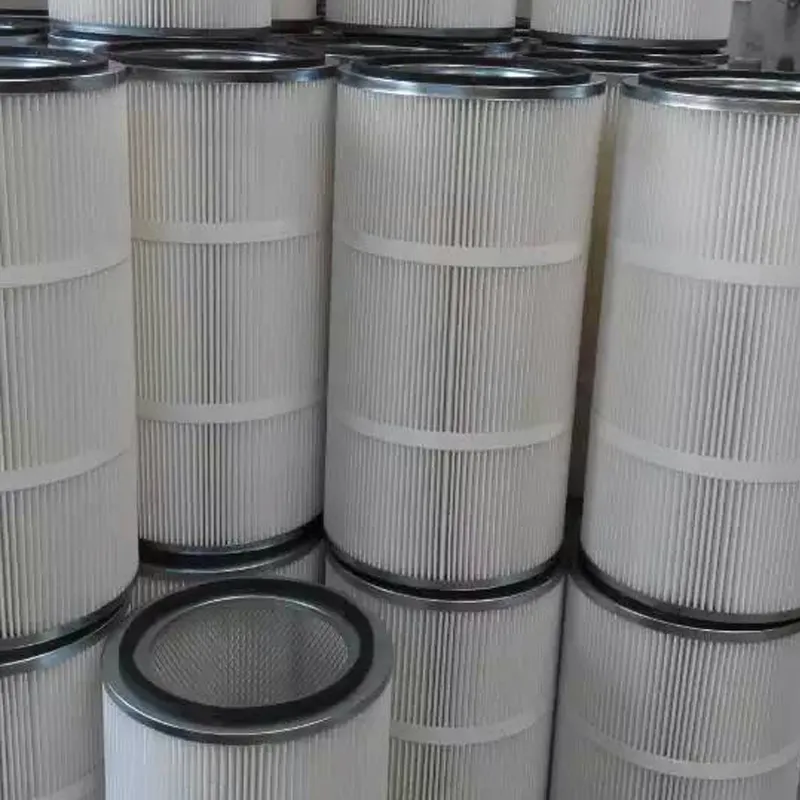 Tel:
+8618931101301
Tel:
+8618931101301
Aug . 18, 2024 14:52 Back to list
Efficient Cartridge Vacuum Filters for Enhanced Liquid Separation and Filtration Solutions
The Cartridge Vacuum Filter An Efficient Solution for Liquid Filtration
In industrial processes, the need for efficient liquid filtration is paramount. Among various filtration technologies, the cartridge vacuum filter stands out as a highly effective and versatile option, widely used in sectors such as pharmaceuticals, food and beverage, wastewater treatment, and chemicals. This article will explore the advantages, working principles, and applications of cartridge vacuum filters.
What is a Cartridge Vacuum Filter?
A cartridge vacuum filter is a filtration system that utilizes a cartridge element to separate solids from liquids. The design is typically a cylindrical cartridge filled with a filtering medium. When subjected to a vacuum, the liquid is drawn through the cartridge, allowing for the effective removal of solid particulates. This method not only enhances filtration efficiency but also aids in reducing processing times.
Working Principle
The working principle of a cartridge vacuum filter is relatively straightforward
. The filter unit consists of a series of cartridges that contain filter media, usually made of synthetic fibers, polymers, or metal. The process begins by creating a vacuum within the filter chamber, which generates a pressure difference between the outside environment and the interior of the cartridge.As the vacuum is activated, the liquid to be filtered is introduced into the filtration chamber. The pressure differential causes the liquid to flow through the filter media while solid particles are retained on the surface of the filtering cartridges. Once the filtration is complete, the cleaned liquid exits the filtering system, while the retained solids are periodically removed, ensuring continuous operation.
Advantages of Cartridge Vacuum Filters
1. High Filtration Efficiency Cartridge vacuum filters provide superior filtration capabilities, effectively removing particulates down to a few microns in size. This makes them suitable for applications requiring stringent quality control.
cartridge vacuum filter

2. Compact Design Compared to other filtration systems, cartridge vacuum filters have a smaller footprint, making them ideal for facilities with limited space.
3. Easy Maintenance The design allows for quick and easy cartridge replacement. This reduces downtime during maintenance and simplifies the cleaning process, making it cost-effective in the long run.
4. Versatility These filters can be used in a variety of applications, from industrial processes to laboratory settings. The cartridges can also be chosen based on the specific requirements of the filtration process, such as pore size and material compatibility.
5. Cost-Effectiveness Over time, the operational costs can be lower than those associated with other filtration methods. The efficiency of the process translates to reduced energy consumption and lower labor costs for maintenance.
Applications
Cartridge vacuum filters are utilized in multiple industries due to their adaptability. In the pharmaceutical industry, they are crucial for ensuring the purity of final products by removing contaminants. In the food and beverage industry, they help in achieving compliance with health regulations by ensuring that the products are free from undesirable solids. Wastewater treatment facilities leverage these filters to remove suspended solids from effluent, thus improving water quality before discharge.
In the chemical industry, cartridge vacuum filters are employed to clarify products, such as dyes and polymers, ensuring that the final output meets quality standards. Furthermore, they are increasingly finding applications in environmental technologies, helping to manage industrial by-products efficiently.
Conclusion
The cartridge vacuum filter is an invaluable tool in modern filtration processes. Its high efficiency, compact design, and ease of maintenance position it as a preferred choice across various sectors. As industries continue to seek effective and environmentally friendly filtration solutions, the cartridge vacuum filter will undoubtedly play a crucial role in facilitating cleaner production processes and ensuring product quality.
-
Working principle of high-efficiency dust filter elementNewsJun.26,2025
-
The truth about washable filters: Does repeated use really not affect efficiency?NewsJun.25,2025
-
Effect of humidity on the performance of activated carbon filter elementsNewsJun.24,2025
-
Material selection considerations for dust removal filter elements under high temperature conditionsNewsJun.23,2025
-
Cold knowledge of air filters: Why are some designed to be pleated?NewsJun.16,2025
-
Factory direct supply! High-precision air filter element wholesale and customizationNewsJun.12,2025

 Email:
Email:





